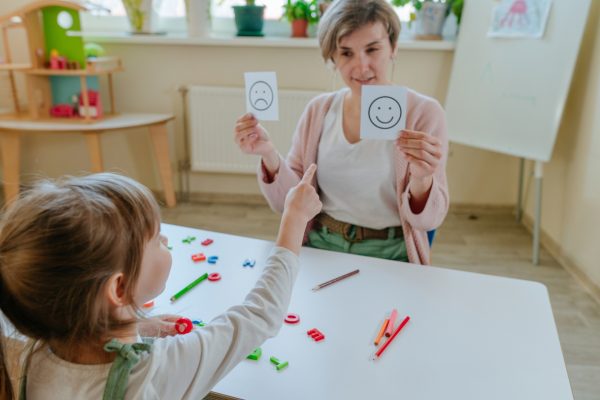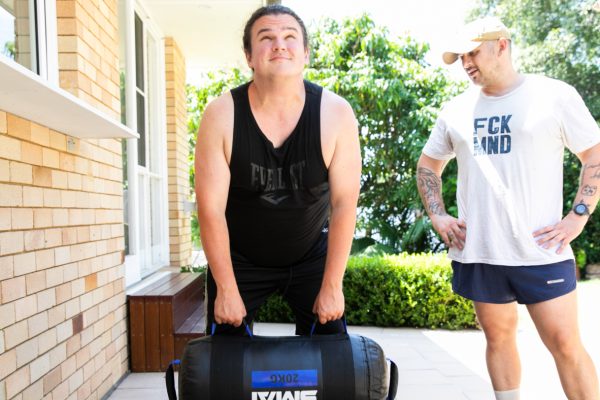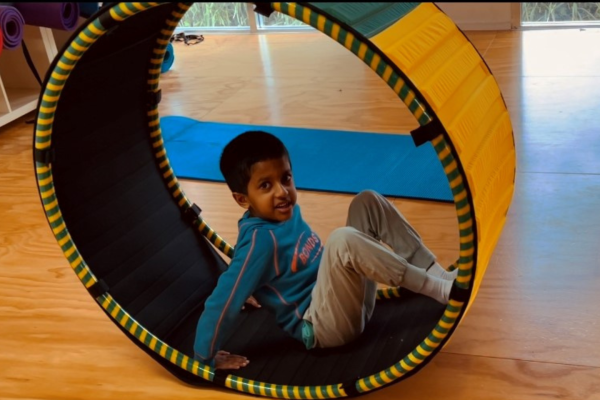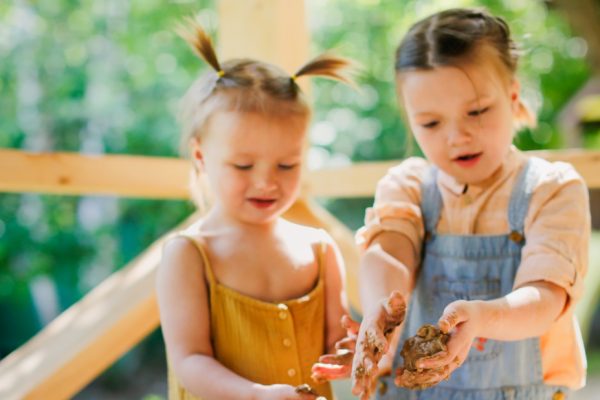
Overcoming challenges of the season
By Marga Grey, OT
Just when you think you’ve carefully crafted a daily routine that minimises your child’s anxiety and tantrums, the holiday season comes round. Instead of this time of year bringing peace and enjoyment with extended family, some families will face challenges of overstimulation and meltdowns.
New places, new faces, new sights, sounds and smells; the holidays can be a total sensory overload for practically anyone. Here are some recommendations for ways to minimise the impact on your child and wider family.
CHANGES TO THE REGULAR ROUTINE
Create a holiday calendar together that illustrates the timeline of the various holiday activities for each day. On days when activities will be atypical, such as parties, travel, visiting Santa, decorating days etc., it’s best to prepare your children in advance.
Read books about the holiday season or watch videos that demonstrate some of the activities you’ll be doing together. This way, if there are any aspects that make your child nervous, you can focus on preparing them for these things in advance.
Even if meals are different or bedtime is later than usual, keep the actions and the order of the routine the same. If you use a routine chart at home, bring it with you if you’re traveling.
If there are other children staying with you that do not follow the same routine, use this as an opportunity to share your routine with the whole family, and invite them to participate. Get your child involved. They will enjoy teaching their cousins and friends about how things are done in their own house and learning about the differences between everyone’s routines.
Keep up with rewards systems. Earning rewards and using positive reinforcement are always the best methods to encourage good behaviour. Make a list of examples of good behaviour that is expected during holidays. You can include things like sharing toys, teaching a family member something new, keeping a low voice while indoors, saying please and thank you, minding what other adults ask, and manners at the dinner table.
Be sure to look for opportunities throughout each day to commend your child’s good behaviour and reward them with activities of their own choice.
Practice self-regulation techniques in advance. Don’t wait until the holiday chaos to try out calming techniques or wearing sound-cancelling headphones. Some good physical activity before, sporadically during, and right after overwhelming situations have been proven helpful for children to adapt, recuperate from, or prevent meltdowns. We like to use the How Do You Feel? chart to start discussions about our emotions and what we can do to adjust.
MANAGING THE OVERWHELM OF MEETING NEW PEOPLE
If you’re traveling, consider private accommodation rather than staying with large groups of family. Staying at extended-family’s homes might be fun for a little while, but everyone needs a break from time to time. If finances allow, choosing a hotel or AirBNB will build in some breathing room and opportunities to decompress. Be sure to explain your motives to the family ahead of time to avoid hurting anyone’s feelings. It might even be an option to split the time – two nights with the family, followed by two nights at the hotel.
Inform your family and friends. Even if your family and friends know about your child’s special needs or sensitivities, it’s a good idea to give them a quick run-down as a reminder. Let visitors or hosts know what types of events might trigger discomfort or put them into sensory overload.
Many parents tell us that they feel more comfortable letting family and friends know in advance what types of behaviours might seem “out-of-place”. This way, they don’t have the added stress and chaos of trying to explain a situation or defend an action. Most times, family and friends simply want to help, and the best help is often to give a parent and child a bit of space and alone time to cope with a meltdown in the moment.
The same goes for children whose challenges affect their ability to greet family with hugs and kisses. Preparing your family in advance for what to expect (or more realistically, what NOT to expect) will save you both from hurt feelings on either side.
HANDLING HOLIDAY EXCITEMENT AND OVERWHELM
Does your family have lots of fun holiday traditions together? We strongly encourage parents to over-estimate the amount of time each activity will take. Allow some breathing down time in the schedule, even if it means missing one or two planned activities this year. Rushing makes sensitivities worse and tempers flare, so allowing plenty of time will reduce meltdowns.
Schedule some alone time for your child to play and decompress. Also, plan a little one-on-one playtime with your child each day to allow you to check in on how he or she is coping along the way.
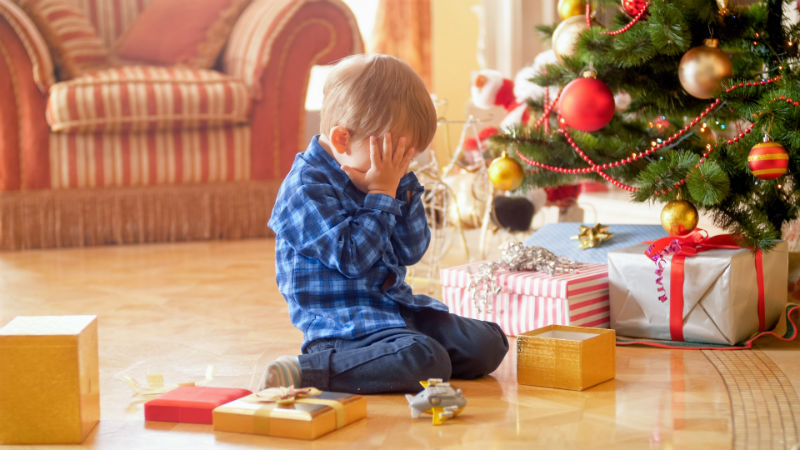

For some children, baking is a wonderful way to decompress; practice following ordered steps, get some hands-on sensory play, and even practice motor skills.
Plan a sensory escape area. A lot of parents find that having a place they can retreat with their child that has low lighting, silence or soft music playing, and “sensory toys” helps their child to regroup after a moment of overwhelm or meltdown.
You could consider setting up a quiet place in your house, hotel, or even your car if you plan on driving somewhere for your holiday festivities. Sensory toys include fidget toys, a favourite blanket to run their fingers through, playdough, oral stimulation bricks/bracelet/necklace, and a blanket to wrap up tightly in. Remind your child to check in with his or herself throughout the kids’ holiday activities to see if it’s a good time to mellow in the sensory escape space. If your child is sensitive to noisy places, invest in ear mufflers or noise cancelling headphones to wear to these events.
If you do plan on attending sensory overwhelming holiday events with lots
of crowds, noise, and holiday lights flashing, look for quieter areas you can
take a quick escape to in order to break up the time exposed to the stressful
situation. Two or three minutes re-centreing yourselves can do wonders for
decompressing the nerves.
HOW TO ENCOURAGE HAPPY EATING HABITS AMIDST NEW FOODS AND NEW PLACES
Mealtime is one of the most common high-stress routines for families, so it deserves some attention and preparation.
For children who have a very limited palate, replacing their comfort foods with completely new holiday treats and meals might be too much of a challenge. It’s perfectly okay to make the decision to cater to their special diet rather than putting on a brave face to ‘fit in’ at the holiday table.
Be sure to forewarn friends and family if you’ll be preparing specific foods. Although you don’t want to offend anyone who offers a treat that your child can’t manage, you also don’t want to cause a scene that will further pressure or hurt their confidence.
Try a few food games throughout the day to keep up with oral-motor therapy and to keep fun and relaxed eating at the forefront of everyone’s mind leading up to dauntingly long holiday meals.
Some common oral-motor exercises are quite silly and fun for the whole family to get involved with. Perhaps they would be fun to do around the dinner table before starting a meal. For example, “Lizard Lips” is when you pretend to be a chameleon trying to catch a fly with his tongue. But the silly fly keeps walking back and forth in front of his face! Stick out your tongue and move it slowly from corner to corner of your lips. Hold in each corner, relax and repeat several times. Be sure your tongue actually touches each corner each time. This is sure to have all of your relatives giggling together.
Also, don’t forget to incorporate those oral sensory components at mealtime. Use a narrow or twisty straw whenever possible. Include a variety of crunchy and chewy components. These will help give that oral sensory feedback a lot of children need at mealtimes.
We know it can be a challenge but by incorporating some of the ideas above we hope you all have a very happy holiday season!
Marga Grey (MSc OT) is a paediatric occupational therapist with a keen interest
in children and their families. She is CEO in charge of program developing at CoordiKids – www.CoordiKids.com Marga provides therapy at Tyack Health, a multi- disciplinary private practice in Brisbane.




